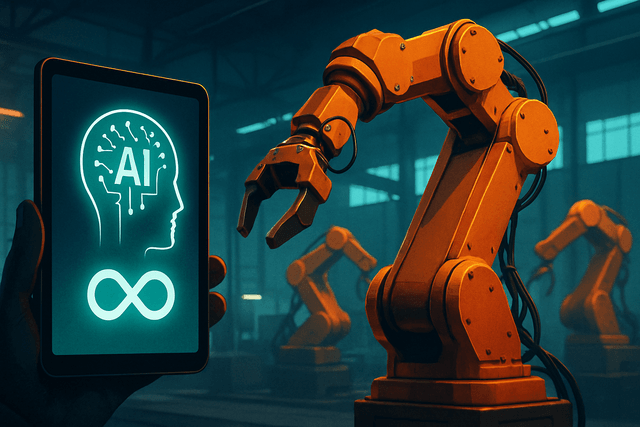Google DeepMind has taken a significant step toward making robots smarter and more independent with the release of Gemini Robotics On-Device, a powerful AI system that operates entirely on the robot itself rather than in the cloud.
Unveiled on June 24, 2025, this vision-language-action (VLA) model represents a major advancement in robotics AI by eliminating the need for constant internet connectivity. The technology builds upon Google's Gemini Robotics platform launched in March, which brought multimodal reasoning and real-world understanding to machines through the Gemini 2.0 framework.
The on-device model delivers impressive capabilities despite running locally. In Google's benchmarks, it performs at a level close to the cloud-based Gemini Robotics model while outperforming other on-device alternatives, particularly on challenging out-of-distribution tasks and complex multi-step instructions.
"Since the model operates independent of a data network, it's helpful for latency sensitive applications, and ensures robustness in environments with intermittent or zero connectivity," Google DeepMind stated in its announcement.
Gemini Robotics On-Device demonstrates strong general-purpose dexterity across various testing scenarios. In demonstrations, robots powered by the model successfully completed highly-dexterous tasks like unzipping bags and folding clothes without cloud assistance. The system can understand natural language commands and adapt to changing environments in real-time.
Google is also releasing a Gemini Robotics SDK to help developers evaluate and customize the model. Notably, this is the first VLA model Google is making available for fine-tuning, allowing developers to adapt it to specific applications with as few as 50 to 100 demonstrations.
Initially trained for ALOHA robots, Google has already adapted the model to work with other platforms, including the bi-arm Franka FR3 robot and Apptronik's Apollo humanoid robot. This versatility suggests broad potential applications across industries from manufacturing to healthcare.
The development comes as competition in AI-powered robotics intensifies, with companies like Nvidia, Hugging Face, and RLWRLD all working on foundation models for robots. Google's on-device approach addresses a critical limitation in the field by enabling robots to function effectively in environments where cloud connectivity is impractical or impossible.

